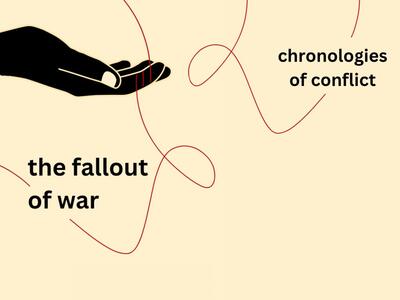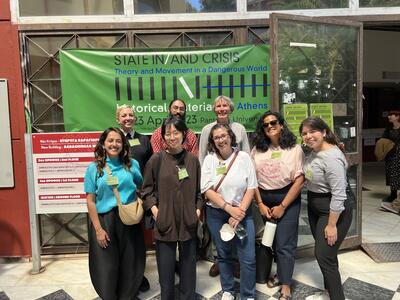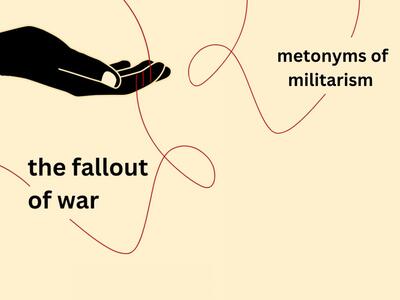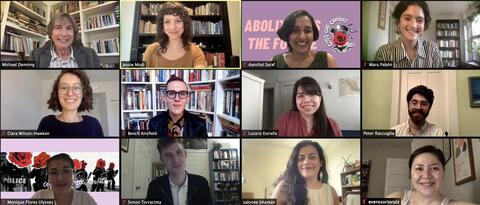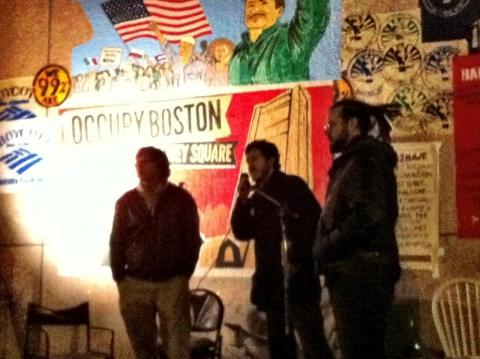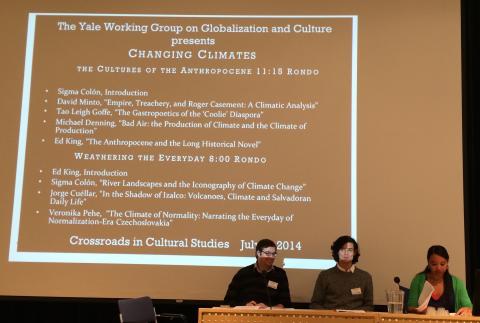The Working Group on Globalization and Culture began two decades ago in an effort to restore to cultural studies not so much the themes or theories of the Birmingham model, but its forms of collective work, trying to break out of the research frameworks of the academic department and the graduate program. Coming out of several different disciplines and inter-disciplines – American Studies, history, anthropology, environmental design, literary criticism, ethnic studies, African-American studies, music, film studies, and political science – we have tried to establish a cultural studies laboratory exploring keywords in contemporary culture and their resonance in social movements: debt, occupation, information, climate, currents, states, and war, presenting our work at conferences and in publications.
Yale Working Group on Globalization and Culture, The Fallout of War, May 6 &13, 2023 @ 
War: what is it, and what is it good for? War might seem like a foregone conclusion or a state of exception; in either case it is an archetype of crisis. In two linked sessions, the Yale Working Group on Globalization and Culture presents their collective research on a keyword of contemporary cultural studies – war – and investigates its many valences as lived reality and as metaphor. Trade wars can become militarized, and hot wars can look cold, depending on your vantage point. The race war, Twitter tells us, is impending; but in an age of US forever war(s), understanding war as punctuating the flow of history seems to be entirely insufficient. War is, some argue, a way of life, a structuring condition that shapes our examinations of the history of the present. The war on drugs, the war on poverty, the war on COVID, the war on Christmas – war is also a ubiquitous metaphor, a self-righteous idiom that announces moral panic and articulates racial logic in otherwise terms. But metaphors of war have also influenced various radical traditions and social movements, including anti-war activism and Gramsci’s deployment of metaphors of war in his theorizing of hegemony. Taking account of war as constitutive of the present, the working group explores war’s meanings as event, analytic, and metonym.
On Saturday May 6, 2-5 PM, the first of our two panels, “The Chronologies of Conflict”
https://marxedproject.org/event/wggc2023-1/ moves from the afterlives of the US Civil War and the internment camps of the Second World War to the labors of making war and to the off-rhymes of war in African-American poetry and the sitcoms of the Global War on Terror. On
Saturday May 13, 2-5 PM,
the second half,
“Metonyms of Militarism,”
https://marxedproject.org/event/wggc2023-2/ explores the fallout of militarism in everyday life and culture from the Marshall Islands to South Korea’s Han River, from Mexican counterrevolution to Palestinian poetry and the warriors of the US “culture war.”
The
Yale Working Group on Globalization and Culture is an interdisciplinary cultural studies laboratory that has been practicing collective research at Yale University for two decades. Over the years, we have presented work collaboratively at numerous cultural studies conferences as well as at the Marxist Education Project, the Left Forum, Occupy Boston, and the World Social Forum. Past projects have been published as “Going into Debt,” online in
Social Text’s Periscope, and as “Spaces and Times of Occupation” in
Transforming Anthropology; a collective interview regarding “Matters of Life and Death” appeared in
Revue Française d’Études Américaines. The current members—Aanchal Saraf, Damanpreet Pelia, Javier Porras Madero, Jessica Marion Modi, Lucero Estrella, Madeleine Han, Maru Pabón, Michael Denning, Monique Flores Ulysses, and Salonee Bhaman—work in American studies, history, Latinx studies, literary criticism, African-American studies, Asian American studies, comparative literature, and womens, gender and sexuality studies.
